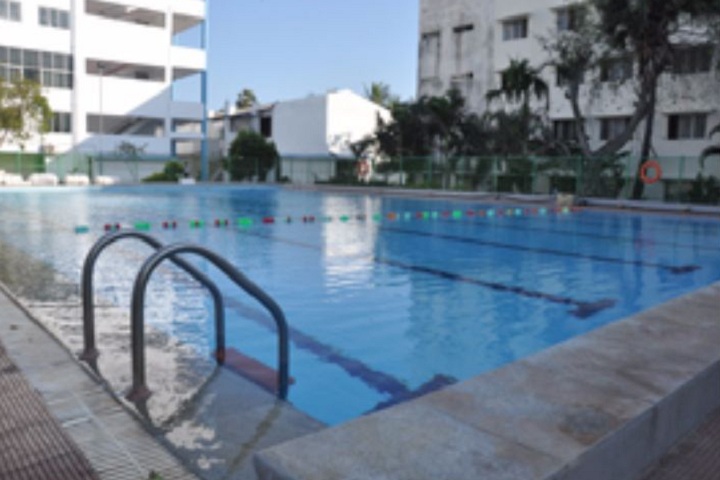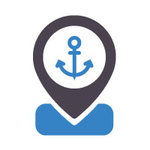
Nautical Science Course Details - Fees, Subjects, Syllabus, Duration, Eligibility, Career Scope
Degrees offered: B.Sc., Diploma, Ph.D, B.F.Sc., B.Sc.(Hons)
What is Nautical Science
Nautical Science is a multidisciplinary subject which deals with the study of the techniques and to know about navigating and operating a ship to safety. Nautical science course includes both theoretical and practical learning. The curriculum for Nautical Science courses often includes a wide range of topics related to maritime safety, navigation, seamanship, ship operations, marine engineering, and maritime law.
A student needs to complete their 10+2 in the Science stream to get admitted to a Nautical Sciences UG course. Similarly, a student needs a bachelor's degree in nautical science with a minimum score of 50 per cent to be qualified for a postgraduate degree in Nautical Science.
The top colleges that offer Nautical Science courses are CIFNET Kochi, HIMT College, Indian Maritime University, IMA Chennai and Training Ship Chanakya. Students who opt for a course in nautical science get hired as Nautical Surveyors, Deck Officers, Scuba Divers, Marine Engineers and Navigation Officers at leading companies.
Highlights- Nautical Science
Particulars | Values |
Branch Name | Nautical Science |
Degree | PG: MSc |
Duration | UG: 3 years PG: 2 years |
Eligibility Criteria | UG: 10+2 with science stream PG: Bachelor’s Degree in a relevant stream |
Admission Process | Entrance Examination/ Direct Admission |
Top Entrance Exams | CUET UG, IMU CET |
Career Options | Nautical Surveyors, Deck Officers, Scuba Divers, Marine Engineers and Navigation Officers |
Average Salary | Rs. 4.9 LPA |
Recruiting Companies | ONGC, SAIL, Coal India, GMDC, Seaborne Maritime, TMC shipping, GSI |
Top Nautical Science Colleges in India
There are many Nautical Science colleges in India offering various specialisations. The admission is based on entrance exams. Mentioned below are the top Nautical Science colleges in India.
College Name | Fees |
Rs. 2.72 Lakhs | |
9.75 Lakhs | |
8.25 Lakhs | |
18.68 Lakhs | |
8.25 Lakhs | |
8.30 Lakhs | |
7.71 Lakhs | |
8.36 Lakhs | |
18.68 Lakhs | |
18.68 Lakhs |
Top Private Nautical Science Colleges in India
There are many private institutes in India offering Nautical Science courses in India. Candidates are advised to check the eligibility criteria of the desired specialisations in nautical sciences on the official website of the institute. Mentioned below are the top private Nautical Science colleges in India.
Name of the College | Fees |
Hindustan Institute of Maritime Training, Kalpakkam | 9.75 Lakhs |
Maharashtra Academy of Naval Education and Training, Pune | 7.71 Lakhs |
- | |
- | |
- | |
Southern Academy of Maritime Studies, Thiruvallur | 8.36 Lakhs |
Tolani Maritime Institute, Induri | 18.68 Lakhs |
Tolani Maritime Institute, Mumbai | 18.68 Lakhs |
- | |
Maharashtra Academy of Naval Education and Training, Pune | 7.71 Lakhs |
Top Government Nautical Science Colleges in India
Government nautical science colleges in India are known to provide quality education. The fee at these colleges is also less as compared to a private institute. Mentioned below are some of the government nautical science institutes in India.
Name of the College | Fees |
CIFNET Kochi | 2.72 Lakhs |
Indian Maritime University, Kochi Campus | 8.25 Lakhs |
Indian Maritime University, Mumbai Port Campus | 18.68 Lakhs |
Indian Maritime University, Navi Mumbai Campus | 8.25 Lakhs |
- |
Eligibility Criteria (UG & PG) of Nautical Science
The eligibility criteria for postgraduate courses in Nautical Science depends on the institute, but it remains almost the same for every institute. Mentioned below are some important eligibility requirements for a postgraduate course in the field of Nautical Science.
- The candidate who wishes to pursue a Master’s degree in nautical science should hold a bachelor’s degree in the required subject from a well-recognised university or college.
- Also, the candidate should have good aggregate in the subject as per the requirement by the University or college.
Nautical Science Entrance Exams
Like other courses, there are various entrance exams that you need to clear to get admission in respective universities for nautical science courses. Information about some of these entrance exams is mentioned in the table below:
Exam Name | Level | Conducting Body | Exam Schedule |
National | NTA | ||
National | Indian Maritime University |
Scope of Nautical Science in India and Abroad
The candidate who completes his/her bachelors in nautical science has great scope to work in both the government and private sector. The candidate gets a chance to work for navy ships and know about the structure of the ship while studying a nautical science course.
Students after the completion of a degree in Nautical Science have enormous career prospects. They get to work as Nautical Surveyors, Deck Officers, Scuba Divers, Marine Engineers and Navigation Officers.
Course Fees Nautical Science
| Minimum Fees | Maximum Fees | |||
|---|---|---|---|---|
| Private | Government | Private | Government | |
| UG | ||||
| DIPLOMA | ||||
Course Subjects
Every course has a set of subjects that deal with the essence of the course and also helps students to understand the course in a broader sense. The Nautical Science Programme has courses that cover Navigation, Cargo Operations, Ship Operation, Seamanship and Workshop practice.
Nautical Science UG Subjects
Undergraduate nautical science coursework is generally divided into six semesters. The course curriculum set by Tolani Maritime University is designed in such a way that it provides students with the ability to apply this knowledge in a shipboard environment. Students are also inculcated with a sense of discipline, team spirit and the right attitude for achieving success.
Semester 1 | |
English and Communication Skills | Nautical Mathematics |
Nautical Physics | Computer Science |
General Ship knowledge | Terrestrial Navigation |
Semester 2 | |
Applied Mathematics | Applied Physics & Electricity |
Nautical Electronics | Ship Construction |
Ship Operation Technology | Chart Work & Collision Prevention Regulations |
Semester 3 | |
Celestial Navigation Paper -I | Ship Stability Paper - I |
Marine Engineering, Automation & Control Systems Paper –I | Meteorology Paper –I |
Cargo Handling & Stowage Paper –I | Bridge Equipment & Watchkeeping Paper –I |
Semester 4 | |
Life Saving & Fire Fighting Appliances | Ship Stability Paper – II |
Cargo Handling & Stowage Paper –II | Ship Maintenance and Emergencies |
Marine Engineering, Automation & Control Systems Paper –II | Meteorology Paper –II |
Semester 5 | |
Coastal Navigation & Collision Prevention Regulations | Naval Architecture Paper – I |
Celestial Navigation Paper –II | Specialised Cargo Handling & Stowage |
Shipping Management | Bridge Equipment & Watchkeeping Paper -II |
Semester 6 | |
Voyage Planning & ECDIS | Naval Architecture Paper –II |
Ship Manoeuvring & Collision Prevention Regulations | IMO & International Conventions |
Human Resource Management, Development & Leadership | Marine Environmental Protection |
Careers in Nautical Science
Students who complete their bachelors, masters or diploma in nautical science can work in the areas like marine industries, marine electronics, tourism, aquaculture, hydro-geology, engineering, environmentally-based recreation, and communication.These are some of the job profiles which candidates can bag after completing nautical science course:
Job Profile | Description |
Deck Officer | A deck officer is responsible for the navigation and handling of the ship. He/she also handles the communication between ship and shore, and delivery of cargo. |
Nautical Surveyor | The nautical surveyor inspects the equipment that is intended for both new and existing vessels. They do surveys like structure, machinery and equipment related to navigation, and radio. |
Scuba Diver | A scuba diver is a person who works below the surface of the water using the scuba gear. They also inspect, repair, remove or install the equipment and structures. |
Marine Superintendent | The Marine superintendent work is to ensure that the vessels are safe, economical and efficient. And their major responsibility is to plan and execute the shipyard repair work. |
A marine engineer works for private organisations and do research, design, develop and construct new marine vessels and their parts. | |
Marine Engineer Instructor | The marine engineer instructor is responsible for teaching, training and assessing on marine courses. They also ensure that their students are properly enrolled in the class and plan the lessons and have course records. |
An operations manager is responsible for coordinating activities related to business requirements and operational decisions. | |
Training Navigation Officer | The training navigation officers are responsible for piloting a ship and operating navigational equipment like electronic charts, radar, gyrocompass. |
A lecturer is responsible for preparing, designing and teaching the subject. They also have access to course work and deliver seminars related to the subject. |
Upcoming trends
Like every other course, nautical science also has had developments which have changed the face of the marine system. According to a global marine technology report, there have been changes in the techniques used in shipbuilding and operation.
There is design freedom, efficient customisation; waste reduction and also virtual inventory drive which have led to the development for the future of shipbuilding technology. Another area of future development is ship propulsion and power generation.
A few upcoming trends that the industry is set to witness are mentioned below:
- Artificial Intelligence
- Clean Energy
- Robotics
- Energy-Efficient Integrations
- IoT
- Blockchain
- Big Data & Analytics
- Immersive Reality
- 5G
- Cybersecurity
Job Profiles and Top Recruiters
Most of the recruiters and companies are looking for candidates who are qualified and well talented in the field. Students get an opportunity to work in both the government and private sector. These are some of the top recruiters of nautical science field:
- ONGC
- SAIL
- Coal India
- GMDC
- Seaborne Maritime
- TMC shipping
- GSI
Average Salary
Most of the companies decide the salary based on the qualification of the candidate and on the work he/she does in the company. These are the salaries given to the candidates for the job profiles related to nautical science:
Job Profile | Average Salary |
Deck Officer | Rs. 3.0 Lakhs |
Nautical Surveyor | Rs. 3.6 Lakhs |
Scuba Diver | Rs. 9.0 Lakhs |
Marine Superintendent | Rs. 35.0 Lakhs |
Marine Engineer | Rs. 12.0 Lakhs |
Operation Manager | Rs. 10.8 Lakhs |
Training Navigation Officer | Rs. 12.0 Lakhs |
Lecturer | Rs. 4.1 Lakhs |
Source: AmbitionBox
Required Skillset for Nautical Science
For every course, there are certain skills required to pursue it. Similarly, mentioned below are the skills that you must posses to opt nautical science course:
- Leadership
- Teamwork
- Communication Skills
- Active Listening
- Perceptive Skills
- Critical thinking
- Time Management
Course Curriculum for Nautical Science
Curriculum for any course is made to impart essential knowledge about the subject in detail. It also deals with the electives and other subjects under the main course. This helps the candidates in understanding the deeper aspects of the subject.
A well-defined curriculum also helps students to gain opportunities to work in the different fields of the respective subject. Nautical science curriculum helps students in understanding the subject in detail and broader aspects.
Some of the subjects taught in Nautical Science courses are as follows:
- Marine Engineering
- Seamanship
- Voyage plan and collision
- Navigation
- Ship Operation Technology
- Maritime Law
Popular Nautical Science Entrance Exams in India
Frequently Asked Questions (FAQs)
Question: What is nautical science? And what is its scope?
Answer :
Nautical science is the multidisciplinary subject which deals with the study of techniques, and knowledge involves navigating and operating a ship safely. It consists of both practical and theoretical training.
Question: Who are some of the top recruiters of the field?
Answer :
There are many top recruiters in the field of nautical engineering, and they are looking for candidates who are outstanding in their education and these are some of the top recruiters like ONGC, SAIL, Coal India, GMDC, Seaborne Maritime, TMC shipping and GSI.
Question: What is the average salary of a marine engineer?
Answer :
Any company, be it a governmental or non-governmental, decides the salary of the candidate based on their qualification and performance in the field. The salary of a marine engineer according to ambition box is Rs. 12 LPA.
Question: What are the eligibility criteria for the students who wish to pursue the Nautical Science UG course?
Answer :
To be eligible for a course in Nautical Sciences, a student must pass class 12 examinations with a science stream. Some universities require students to conform to certain medical standards.
Question: What are some of the posts offered after completing a nautical science course?
Answer :
After completing the bachelors and masters in nautical science, the candidate has the opportunity to work in various fields. And these are some of the posts Marine engineer, deck officer, and marine superintendent.
Questions related to Nautical Science
i want to make my career in merchant Navy which would be best DNS or B.SC NAUTICAL SCIENCE?
B.SC. Nautical Science 3 year pre sea course, for class 12 students to join as Deck cadet on a ship. This course consists of 6 semesters, and provides a better insight into the job than the DNS course. After completing the pre sea training and receiving the B.SC degree,cadets can join a ship and can raise to the position of captain in 8 to 10 years.
Where as a Diploma in Nautical science is an undergraduate course of one year. This consists of two semesters and is also for class 12 students to pursue a career as Deck officer.
As for deciding which is better no one can answer that question. Both B.SC and DNS have their own set of drawbacks and advantages. You should analyze yourself better which course suits you better.
By choosing B.SC you get to experience a college life, in these 3 years the college will help you build right attitude to tackle all the challenges. As both are Degree courses, the advantage in B.SC. degree is you can quit the job and can be able to enroll yourself in other PG courses. On the other hand, if you studied DNS you will be stuck until you clear your MMD exam. While coming to advantages in DNS, the investment in terms of fees is less and you can start earning early also your job is secure.
is there entrance exam for Bsc. Nautical science admission
Hello,
The eligibility criteria for BSc Nautical Science is that the candidates must have passed 10+2 from the Science stream with Physics, Chemistry, Mathematics, and English as mandatory subjects. Candidates must have completed their 10+2 with at least 60% aggregate marks.
All candidates applying for B.Sc Nautical Science Course also need to appear for entrance exams such as CUET, CUSAT CAT and CET.
I hope this helps,
Thank you
which is much better, diploma in nautical science or bachelors in nautical science.?
Hello aspirant,
Opting for a diploma in nautical science offers several advantages over pursuing a BSc in the same field. BSc in nautical science is a suitable choice only if you intend to transition out of the shipping industry after completing additional management courses. Otherwise, the diploma in nautical science course is a superior option.
Thank you
Hope it helps you
What exams are needed for nautical science
Hii There,
Commonly recognized entrance examinations for B.Sc Nautical Science programs in India encompass IMU CET, TMISAT, AIMNET, MANET CET, and the CMC Entrance Exam. Applicants are required to complete application forms for the respective entrance tests they have chosen to apply for.
For more information, please refer:
https://www.careers360.com/courses/nautical-science-course
Thanks
Can I get admission in B.Sc nautical science if my rank is 9000 ( general)in IMUCET?
Hi,
Indian Maritime University Common Entrance Test (IMU CET) is conducted every year for taking admission in various under graduate and post graduate programs.
It is a computer based test of 120 minutes in which 200 questions needs to be solved.
Ths eligibility criteria for BSc candidates is to have Physics Chemistry and Mathematics as subjects with minimum 50% marks along with English in class 10 and class 12.
The cutoff rank for general candidate used to be around 130. As you have mentioned your rank is 9000, therefore, you might not get any seat. However, it depends on various factors like toughness (difficulty level) of the exam and number of candidates appeared.
Thank you!








 Answer later
Answer later




















